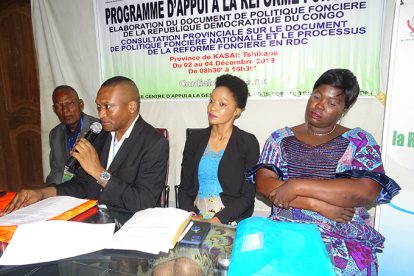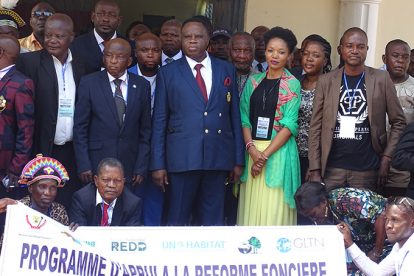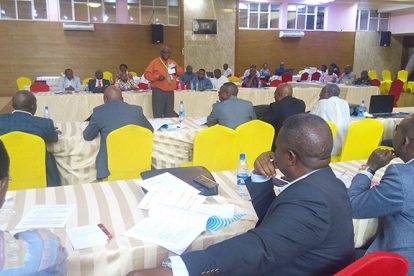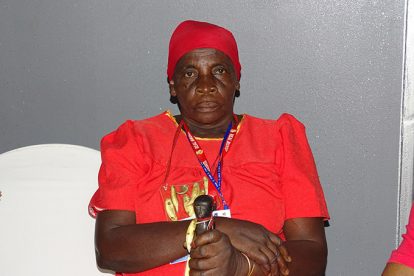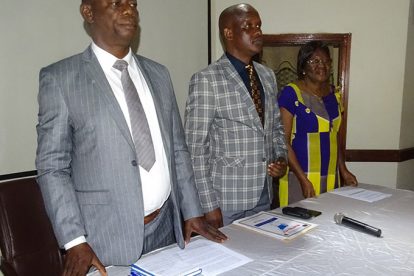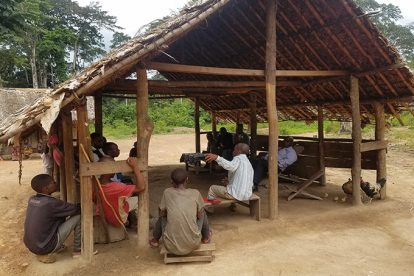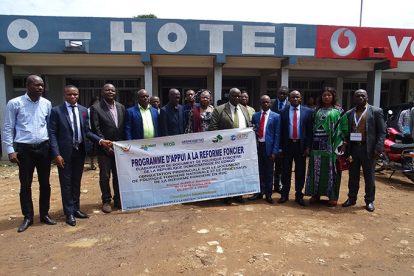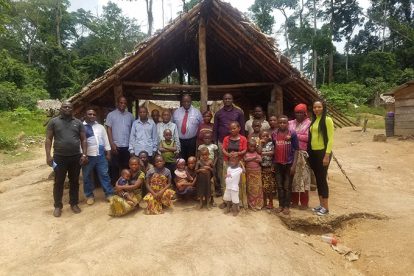Country context
With a surface area of 2,345,410 square kilometers and a population of approximately 89 million (of which nearly 70% live in rural areas), the Democratic Republic of the Congo (DRC) is endowed with about 135 million hectares of agricultural land, that is neither forest nor mountain and which represents about 34% of the national territory. Of this, only 10% is developed. Despite the fact that the law has vested both urban and rural land management in the state, a large proportion of these lands continue to be governed by customary law and practices through which traditional chiefs claim a cultural right to management.
The absence of a land policy adapted to the Sustainable Development Goals (SDGs)and to the political, economic, social, cultural and environmental developments in the country has been highlighted as a major contributor to the challenges facing the country’s land sector today. This has resulted in a system and practices that do not promote land productivity. Rather than becoming an instrument of social reconciliation and a factor of economic development, the land sector has been tainted by corruption and an ineffective land administration. This has indirectly led to an increase in insecurity of land tenure in rural and peri-urban areas, an increase in land malpractices in urban areas, an increase in land disputes, land speculation and inadequate valuation of land resources among other ills.
These practices have exposed the weak capacity of government land administration characterized by:
- Weak management of the sector,
- Lack of an adequate land information management system and record keeping,
- No transparency in land transactions,
- Conflicts between the land administration departments and traditional authorities,
- Lack of a harmonization in the institutional framework.
UN-Habitat/ GLTN has been operating in the DRC since 1998. During this period, several initiatives that impacted the lives of the population have been implemented by various partners:
- The National Survey on Housing and Socio-economic Profile of households in urban areas/ RDC 1999 survey, with funding from the UNDP;
- The study of the National Action Plan for Housing along with a priority investment program, approved by the Government of the DRC in 2002, with funding from the UNDP;
- The Urban Plan of the Lac Vert / Mugunga site, east of the city of Goma in 2002-2003 after the Nyiragongo volcanic eruption, with funding from the UNDP;
- The Community Participatory Program in 2006-2007 in the municipalities of Ndjili and Masina in Kinshasa with funding from the Spanish cooperation.
- The Urban Development Plan of the City of Kisangani, in 2009 – 2010 with funding from the UNDP;
- The Participatory Slum Improvement Program, first and second phases in Bunia, Kisangani, Lubumbashi and Kinshasa, since 2004 with funding from the European Union.
Specifically, UN-Habitat has implemented the following projects and programmes:
- Community Participatory Land Planning,
- Project “Amani ni njia ya Maendeleo” -Peace for development- (IRF Mambasa) – Phase 2,
- Integrated North Kalehe stabilization project in South Kivu. Phase 2,
- PAMOJA KWA AMANI,
- Land governance, social cohesion, socio-economic reintegration and prevention of Gender-based Violence in Kitshanga,
- Support to DRC land reform programme: Formulation of the land policy document in the DRC.
Photo Gallery
The Land Reform Programme
Implemented with the support of UN-Habitat/GLTN, in collaboration with the National Ministry of Land Affairs through the Commission Nationale de la Reforme Foncière CONAREF (National Commission of Land Reform), this programme is part of the National REDD + Strategy and its Investment Plan. The programme started in 2018 and it seeks to improve land management to prevent conflicts, contribute to the permanent reduction of deforestation, forest degradation and greenhouse gas emissions and improve the appeal of REDD +investments for effective and efficient implementation of REDD+ in the DRC.
The programme has three main objectives:
- Strengthening CONAREF to take over and implement the land reform,
- Participatory formulation of a national land policy document and legal texts and related regulatory requirements,
- Development of methodological guides for strengthening the ‘Cadastres’ and capitalize lessons learnt from pilot experiences
Key achievements to date
- CONAREF is now functional and conducting its statutory meetings on a regular basis. The Administration and Finance manual of procedures has been validated and is now in use. Capacity building for staff has been launched.
- The first draft of the Land Policy document is available and undergoing provincial consultations to make the land reform a participative process and collect land stakeholders’ inputs on the draft land policy document.
- The Land Information System (LIS) is being piloted through Community Land Register as part of LIS at the community level. The methodological guides as tools for support to communities have been drafted.
Key documents
- DRC Country Brief
- GLTN – DRC Plan of Action
- Improving women’s access to land in Eastern DRC: Challenges and emerging opportunities
- Guide to Land Mediation
- Guide de mediation fonciere: Base sur l’Experience de l’Est de la Republique Democratique du Congo
- Atelier de Consultation des Partenaires sur le Developpement du Plan D’amenagement Foncier Participatif (PAFP)
- Article: Developing the land policy document and strengthening the capacity of the land administration in the DRC-2019 Highlights
Upcoming events:
- Sensitization on the land reform process and Land Information system
- Evaluation of the 1972 Congolese Land Low
- Provincial consultations on the National Land Policy document
- Land tenure study in Kasai Oriental








